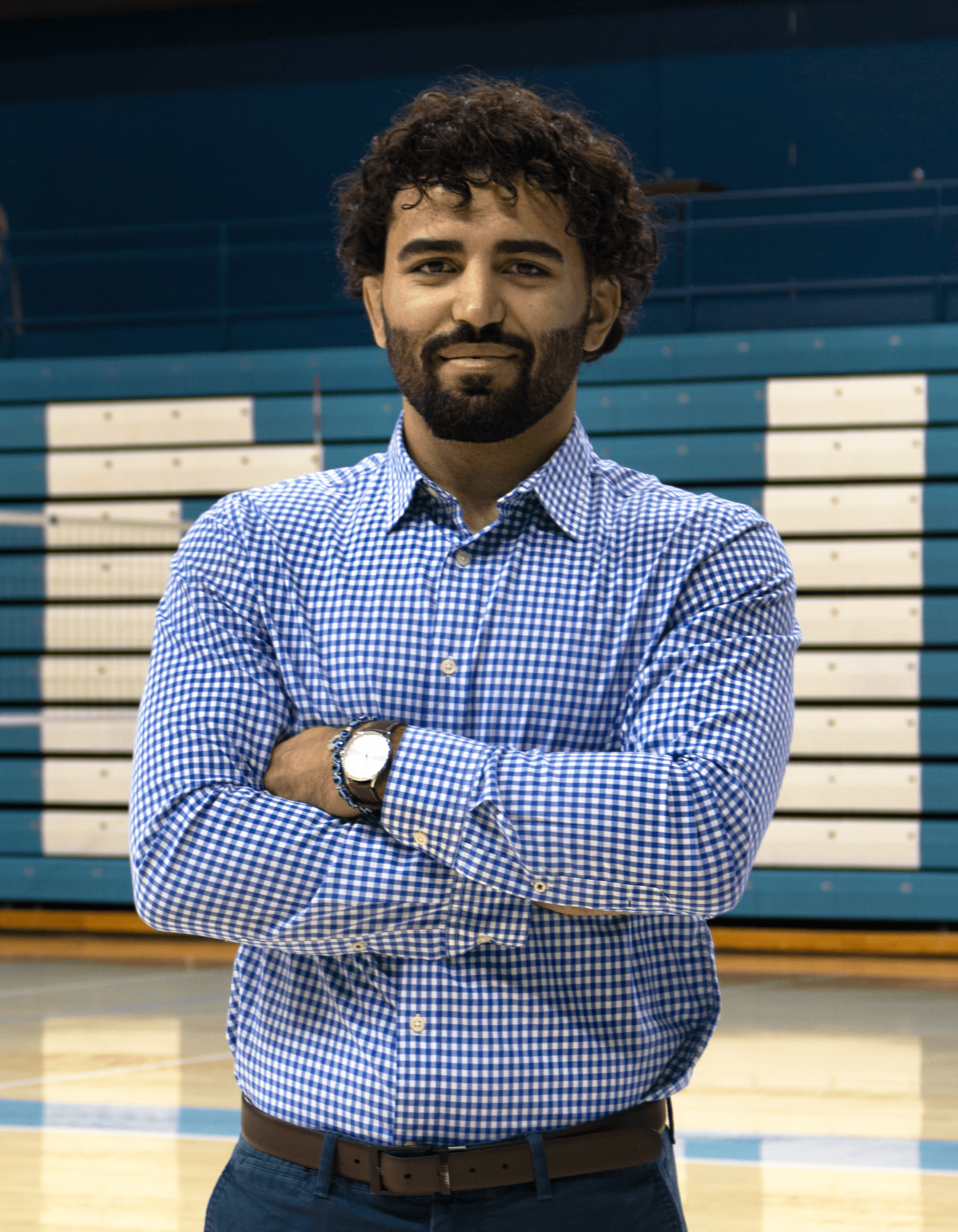Araad Fisher (M.A. ’22) researches the relationship between college athletic participation and socioeconomic mobility in UNC’s highly ranked

graduate sport administration program. Fisher graduated from Duke University in 2019 with a political science degree and was on the wrestling team. He served as an ACE Ambassador in The Rubenstein-Bing Student-Athlete Civic Engagement Program in Cape Town, South Africa, and worked as a Diversity Sourcing Intern for Nike. In celebration of Graduate and Professional Student Appreciation Week, we asked about Fisher’s research, passions and advice for future graduate students.
Q: What led you to Carolina to pursue your graduate degree?
A: My dad wrestled at UNC in the ’90s. I grew up liking Carolina and the opportunity to join the highly prestigious program here presented itself. It was overall a great step for my growth while earning my master’s and learning from the amazing faculty, as well as staying close to my family.
Q: Tell us briefly about the focus of your research or area of study.
A: My research evaluated the relationship between college athletic participation and socioeconomic mobility. Basically, do college athletes experience more social mobility compared to those that didn’t play sports? This is important given that the NCAA and universities push this narrative that the purpose of college sports is to offer life-changing opportunities. A lot of studies say sports can do such but they’re either dated or don’t evaluate that claim. There’s also a lot of research showing how former athletes have higher incomes and advanced professional skill sets, but nothing measured something as telling of life outcomes as socioeconomic status (SES). So I wanted to evaluate that claim. We ran a survey of former athletes and nonathletes.
The results were interesting. Overall, athletes did experience more SES mobility and hold higher current SES standings compared to nonathletes, but they also came from higher SES backgrounds (wealthier backgrounds). However, it was a different story when looking at the results by race. Racial minority nonathletes experienced more SES mobility and hold higher current SES standings than their same-race athlete peers, despite coming from similar backgrounds. This is interesting because a lot of research shows how the “sports as opportunity” narrative is pushed on youth from minority and marginalized groups much more than it is on white youth. So if those that didn’t play sports have better life outcomes than those that did, the idea that college sports are here to help people uplift themselves is debunked, particularly for racial minority groups. So the big takeaway is that the institutions that push that narrative need to either invest more into minority nonathletes or stop pushing a destructive narrative. It also opens the door to future research that dives deeper into the relationship between sports and SES.
Q: Describe a favorite experience (internship, project, travel, teaching, etc.) related to your graduate work.
A: Doing the research for my thesis and the satisfaction of finishing it. Working with Dr. Erianne Weight was a pleasure. She’s very renowned for her research and it was awesome collaborating and learning from an experienced professional like her. She’s been very supportive throughout my time here and I look forward to collaborating with her in the future.
Q: What are you passionate about in your field?
A: Helping people. Contributing to the success of the people and organizations I work with.
Q: It’s a Saturday afternoon, and you’re taking a break from your graduate work. Where would we find you?
A: When the weather is nice, you can find me outside enjoying nature. Spending time with my friends and family. I love traveling — even weekend trips out of town or, when possible, internationally.
Q: What one-sentence advice would you give to future graduate students?
A: Be persistent on the path to accomplishing your goals. There are peaks and valleys, so embrace the struggle when it comes because that’s how you know you’re getting better.
By Lauren Mobley ‘22
